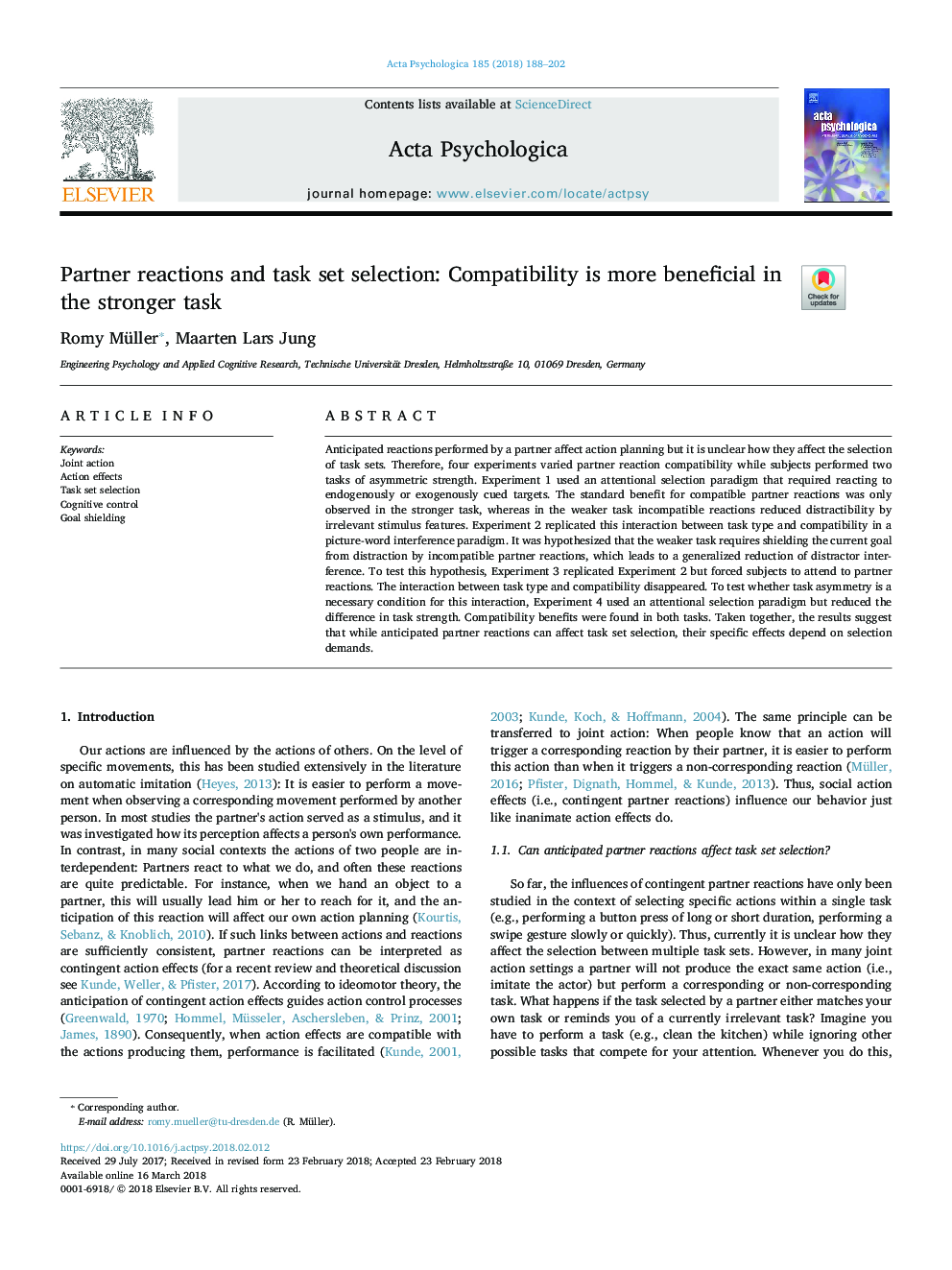| Article ID | Journal | Published Year | Pages | File Type |
|---|---|---|---|---|
| 7276786 | Acta Psychologica | 2018 | 15 Pages |
Abstract
Anticipated reactions performed by a partner affect action planning but it is unclear how they affect the selection of task sets. Therefore, four experiments varied partner reaction compatibility while subjects performed two tasks of asymmetric strength. Experiment 1 used an attentional selection paradigm that required reacting to endogenously or exogenously cued targets. The standard benefit for compatible partner reactions was only observed in the stronger task, whereas in the weaker task incompatible reactions reduced distractibility by irrelevant stimulus features. Experiment 2 replicated this interaction between task type and compatibility in a picture-word interference paradigm. It was hypothesized that the weaker task requires shielding the current goal from distraction by incompatible partner reactions, which leads to a generalized reduction of distractor interference. To test this hypothesis, Experiment 3 replicated Experiment 2 but forced subjects to attend to partner reactions. The interaction between task type and compatibility disappeared. To test whether task asymmetry is a necessary condition for this interaction, Experiment 4 used an attentional selection paradigm but reduced the difference in task strength. Compatibility benefits were found in both tasks. Taken together, the results suggest that while anticipated partner reactions can affect task set selection, their specific effects depend on selection demands.
Related Topics
Life Sciences
Neuroscience
Cognitive Neuroscience
Authors
Romy Müller, Maarten Lars Jung,
